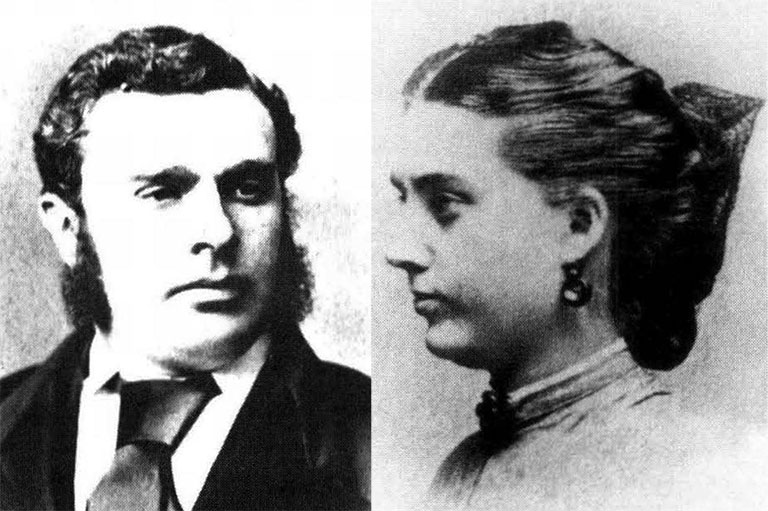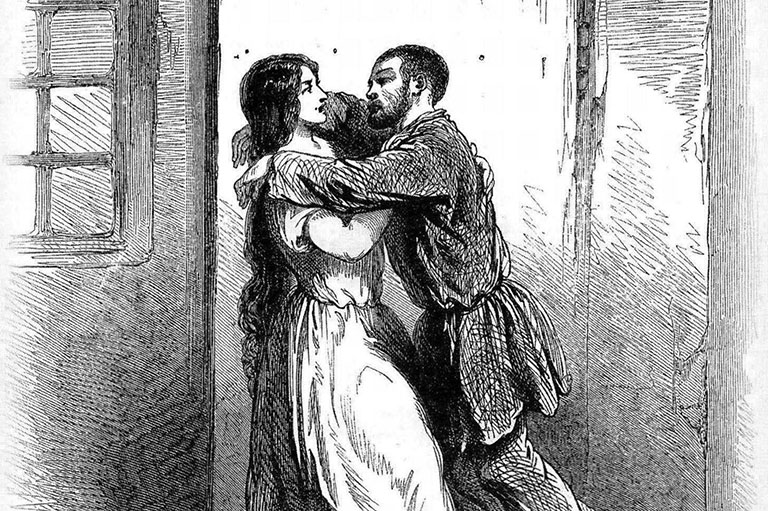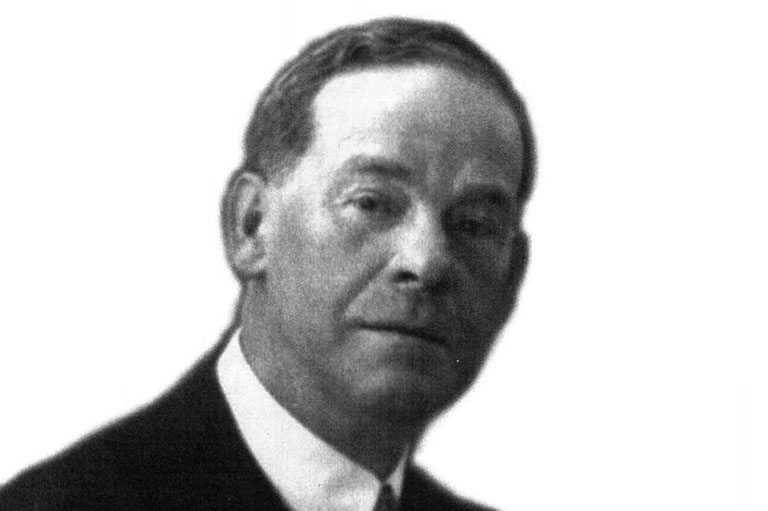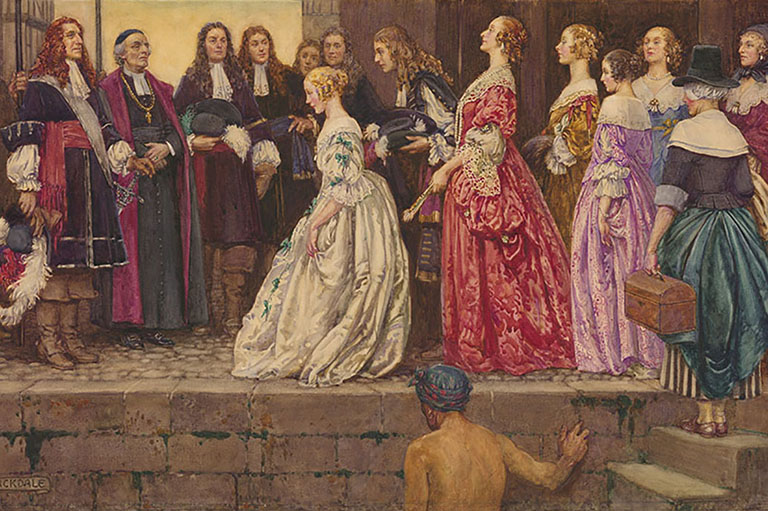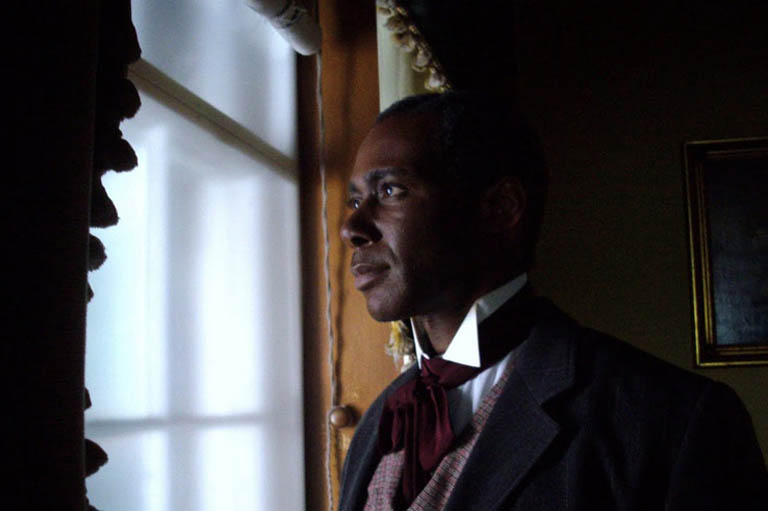The Case of the Chaste Adulteress
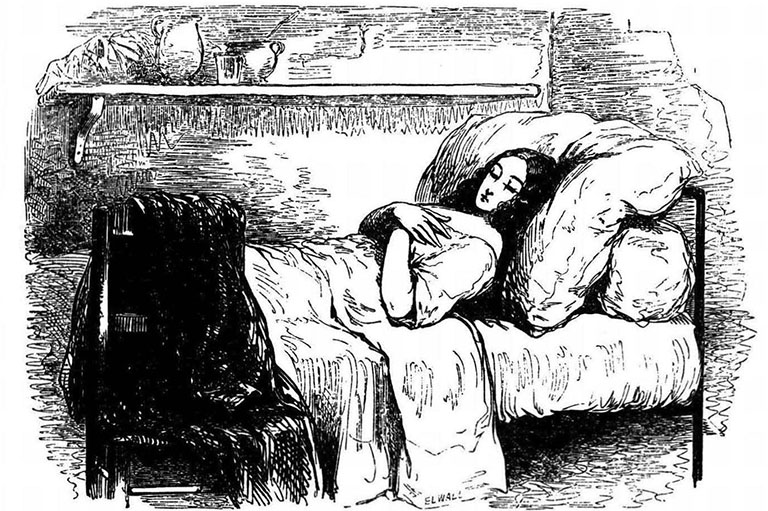
In December 1999, a Durham, North Carolina judge ordered Baltimore psychiatrist John Breitner to pay $42,800 in damages to a Duke University professor for sleeping with the professor’s wife. Judge Howard Manning said $40,000 of the award was to punish Breitner, chairman of the mental hygiene department of John Hopkins University’s School of Public Health, for committing adultery with Duke University professor George Gopen’s wife, Gillian Einstein.
“This is North Carolina,” Manning wrote in his decision. “In North Carolina one does not engage in sexual intercourse with another person’s spouse knowing that he or she is married.”
Manning noted in his decision that all three parties to the lawsuit were graduates of Harvard University and moved in rarefied circles. “These acts of adultery occurred in an academic atmosphere, with trappings of fine wine, romantic lunches, classical records and CDs, cerebral conversations and within an environment self-perceived as highly cultured,” he wrote. Despite the trappings, Manning said the adultery was “as common as pig tracks,” a term he went on to define as being synonymous with “lowlife” behaviour. Other lurid details of their “practising lust” escaped his comments, but not his reflections, he added.
Professor Gopen sued his wife and her lover for what’s known in law as “criminal conversation.” Criminal conversation is a supremely misleading legal term. It’s not a crime, nor does it have anything to do with conversation. Criminal conversation is a lawsuit, to quote the classic legal definition, for “defilement of the marriage bed”—in other words, for adultery.
Criminal conversation lawsuits, always popular in some parts of the United States, are fast becoming a legal growth industry stateside. So much so that in some states, when lawyers draw up premarital agreements that govern division of property, support payments, and inheritance in the event of marital breakdown, they now also tuck in what’s known as “dangerous liaison” clauses that bar husband and wife from suing if either engages in hanky-panky.
Judge Manning’s damages award to the cuckolded professor, and his colourful language, reflect an idea enshrined in American law: that marital infidelity is a stain upon family honour that must he punished.
That’s a legal notion Canada once shared, hut has largely abandoned.
Until two decades ago a betrayed spouse could sue a cheating mate and his or her paramour. Even where husband and wife were separated by mutual agreement and no longer living under the same roof when the extramarital sex occurred, Canadian courts sometimes ordered the “offending” spouse and lover to pay damages. Some judges even increased the damages award where the spouse had a live-in boyfriend or girlfriend, because he or she, as one judge put it, had “deprived the couple of whatever chance there might be of reconciliation.”
With 7 uniquely curated newsletters to choose from, we have something for everyone.
But in the 1970s, feminists and provincial law reform commissions began to push hard for abolition of the right to sue for criminal conversation. Although technically either husband or wife could sue, women rarely did. Virtually all reported twentieth-century Canadian criminal conversation lawsuits were launched by men, reflecting the fact that it was at base a legal action designed to compensate a husband for loss of proprietary rights in his—to borrow a term often used by judges—“chattel-wife.”
Provincial law reform commissions that studied criminal conversation actions also questioned the motive behind such suits. They concluded spouses often used criminal conversation litigation to pursue personal, not legal, agendas. Some spouses, went the argument, used the courts not so much to collect damages as to inflict a public and emotionally messy revenge on an ex.
By the late 1970s, Canadian criminal conversation lawsuits were almost extinct, which added yet more fuel to the argument for abolition. Canadian men, it appeared, agreed with British jurist Lord St. Leonard’s declaration that he “would rather touch a scorpion than the money awarded in compensation of honour.”
Most Canadians are no longer liable to having a court fix the price to be paid for bedding someone other than a spouse, or for bedding another’s husband or wife. By the 1980s all provinces but one had abolished the right to sue for a spouse’s infidelity. Only Alberta adulterers need worry that if they make their bed a judge can make them lie in it. While adultery is a Canada-wide ground for divorce, only Albertans can still also sue a spouse and his or her lover for their extramarital amours.
Americans adultery-litigation mania notwithstanding, when it comes to illicit sex, Canadians have one up on their neighbours. For adultery, American law requires sexual intercourse. In Canada, you can commit adultery without actually having sex.
Canada boasts the western world’s first and only, and still legally authoritative, court ruling* that artificial insemination constitutes adultery. The case, a cause célèbre in its time, featured a plot born of Edwardian-era morality.
It all started in 1910 when pretty twenty-year-old Lillian Partridge of Weston-super-Mare, England moved to Toronto. Three years later she met, and wed, Thomas Orford. Lillian, being a lady of her time, was a virgin bride.
Following the wedding the couple went on a honeymoon cruise to England. It wasn’t a honeymoon laced with passion. Lillian found all attempts at intercourse too painful to “do the deed,” as one commentator artfully put it. Their bedroom problems continued while in England. Ultimately the marriage was never consummated. After several sexless months, Orford returned home to Toronto. Lillian remained in England, living with her parents.
In December 1919, after not having seen her husband for more than six years, Lillian suddenly returned to Toronto and tried to parachute back into his life and home. Orford wanted none of her, or the marriage. Faced with his rebuke, she sued for alimony.
At that time Canadian law allowed a husband to avoid paying alimony on proof of a wife’s adultery. Orford’s defence to Lillian’s lawsuit was that she had an affair in England with a man named George Hodgkinson, and even bore a child by him. At trial, Lillian admitted giving birth to a son in February 1919 and further admitted she had entered his name in the birth registry as Peter Hodgkinson and declared one George Hodgkinson to be the father. Yet she adamantly denied committing adultery.
Save as much as 40% off the cover price! 4 issues per year as low as $29.95. Available in print and digital. Tariff-exempt!
Her explanation was that she’d consulted her doctor regarding her inability to make love. Her doctor advised that one way she might be cured was by bearing a child, and that pregnancy might be achieved by artificial insemination. Wanting to still save herself for her husband, she saw this as her only remedy, she testified. She discussed the artificial insemination option with a friend, George Hodgkinson, who was desperate to have a child. Hodgkinson, she said, offered to arrange the insemination and pay all pregnancy and confinement expenses in return for her consenting to his adopting the child. She agreed.
To effect their agreement, she met Hodgkinson and an unnamed physician at Hodgkinson’s apartment. Following the doctor’s instructions, she undressed and got into Hodgkinson’s bed. The doctor then put her under an anaesthetic. When she regained consciousness, she testified, Hodgkinson told her she’d been artificially inseminated. He said his semen had been injected into her body by the physician by means of a syringe.
Several months passed, but she didn’t become pregnant. In May 1918 the whole procedure was repeated, she said, again at Hodgkinson’s apartment and with the same unknown physician in attendance. Soon after, she discovered she was pregnant.
Her story got points for creativity, if not credibility, from the presiding judge, Mr. Justice Orde of the Ontario High Court. Orde flatly stated in his judgment that he didn’t believe her. He concluded Lillian “had become Hodgkinson’s mistress” and “she had sexual intercourse in the ordinary way” with him. Nonetheless, he felt compelled to also rule on the issue of whether, assuming Lillian’s story to be true, a wife who is artificially inseminated by other than her husband, and without her husband’s knowledge and consent, had committed adultery. Focusing not on sex, but reproductive biology, he concluded she had.
“The essence of the offence of adultery consists not in the moral turpitude of the act of sexual intercourse,” he wrote, “but in the voluntary surrender to another person of the reproductive powers or faculties of the guilty person; and any submission of those powers to the service or enjoyment of any person other than the husband or the wife comes within the definition of ‘adultery.’”
No other jurisdiction has followed Canada down this legal rabbit hole. Courts in Great Britain and the United States have consistently ruled that being artificially inseminated without a spouse’s consent isn’t adultery. Canada’s adultery-without-a-bonk legal stance has met with much academic criticism, and no little amusement.
“Only in Canada,” noted a former University of Manitoba faculty of law professor, “can you commit the matrimonial offence without indulging in a night of sin.”
* Court ruling: (1921), 58 D.L.R. 251 (Ont.S.C.)
At Canada’s History, we highlight our nation’s past by telling stories that illuminate the people, places, and events that unite us as Canadians, while understanding that diverse past experiences can shape multiple perceptions of our history.
Canada’s History is a registered charity. Generous contributions from readers like you help us explore and celebrate Canada’s diverse stories and make them accessible to all through our free online content.
Please donate to Canada’s History today. Thank you!
Themes associated with this article
Advertisement
You might also like...

Canada’s History Archive, featuring The Beaver, is now available for your browsing and searching pleasure!


